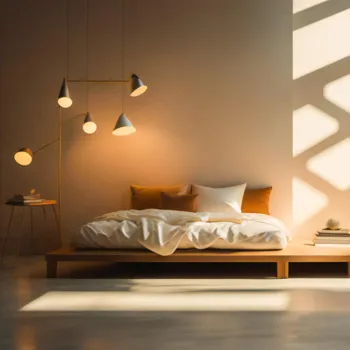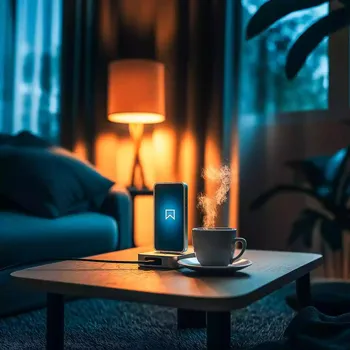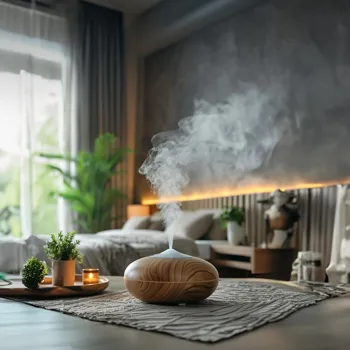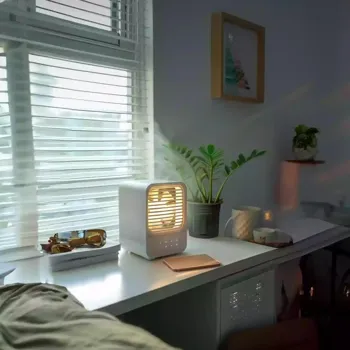Unravel the Science of Sleep: 9 Facts to Transform Your Rest Game! Dive into the secrets of sleep for a healthier you!
Namaste, readers! Feeling a bit tired, eh? Struggling to get a good night's sleep?
Don't worry, you're not alone. In today's fast-paced world, sleep often takes a backseat. But good sleep, yaar, is super important for your health and happiness.

It’s not just about feeling rested, it's about giving your body and mind the time they need to recharge and function properly. Toh chalo, let's dive into the science behind sleep and learn some easy tips to help you catch those Zzz's like a pro!
We'll explore nine fascinating facts that'll change the way you think about sleep, and most importantly, help you sleep better, beta!
Our body's internal clock, the circadian rhythm, crucial for sleep, affected by light exposure
You know how your body somehow knows when it's time to wake up or feel sleepy? That’s thanks to something called the circadian rhythm.
Think of it as your internal biological clock, a 24-hour cycle that regulates sleep-wake times, hormone release, body temperature, and other important bodily functions.
This clock is mainly controlled by a part of the brain called the suprachiasmatic nucleus (SCN), which responds to light and darkness. Light exposure, especially sunlight, helps to keep your circadian rhythm in sync. That's why consistent exposure to daylight is important for managing your sleep.
When your circadian rhythm is disrupted, due to things like jet lag or shift work, it can lead to sleep problems. Your whole system goes haywire, causing poor sleep quality, hormonal imbalances, and decreased alertness and performance.
Exposure to light affects melatonin release, impacting sleep
Our bodies are designed to respond to light and darkness. Light, especially blue light from your mobiles and laptops, suppresses the release of melatonin, a hormone that promotes sleepiness. So, scrolling through Instagram before bed is a big no-no, boss!

It's like telling your brain it's daytime when it should be preparing for sleep. That’s why dimming the lights two hours before bedtime creates a relaxing atmosphere. Melatonin is your sleep superhero, produced by the pineal gland, it helps regulate your sleep-wake cycle.
So, it helps signal to your body that it's time to sleep. Light exposure tells your brain to halt melatonin production, keeping you alert. This disruption in melatonin secretion can lead to difficulty falling asleep and staying asleep. Turn off the tv and enjoy reading a book.
Regular exercise enhances sleep quality, timing crucial for effectiveness
Regular exercise is fantastic for sleep! It can reduce stress, improve mood, and promote deeper, more restful sleep, but timing is key. Avoid intense workouts too close to bedtime, as they can have a stimulating effect and make it harder to fall asleep.

It's better to exercise earlier in the day, like in the morning or afternoon. Regular physical activity helps synchronize your circadian rhythm, making it easier to fall asleep and wake up at consistent times.
A simple walk in the evening also aids in digestion, and digestion help you attain good sleep. If you are a office worker, you should definitely walk every evening, you will feel more active.
Diet affects sleep quality; avoid heavy meals, caffeine, and alcohol
What you eat and drink can significantly impact your sleep. Avoid large meals, caffeine, and alcohol before bed. A heavy, sugary meal can disrupt your sleep and cause indigestion, whereas both caffeine and alcohol interfere with your sleep cycles. Avoid too much chai before bed too.

Instead, opt for a light snack or try sleep-promoting foods like almonds, warm milk, or chamomile tea. Some amino acids in foods can aid in production of happy hormones and induce good sleep. Keeping yourself hydrated with a glass of water also regulates hormones in the night.
Reduce stress for better sleep with relaxation techniques like deep breathing and mindfulness
High stress levels can wreak havoc on your sleep. Stress hormones like cortisol can keep you awake and prevent you from falling asleep easily. So, incorporate relaxation techniques into your evening routine to calm your mind and body.

Deep breathing exercises, meditation, yoga, or even taking a warm bath can help reduce stress. Practicing mindfulness can also help you focus on the present moment and let go of worries that keep you up at night. Listen to music, read and relax to reduce stress and induce sleep.
Create a sleep-conducive bedroom for better rest
Make sure your bedroom is conducive to sleep. Keep it dark, quiet, and cool. Use blackout curtains, earplugs, and a fan or white noise machine to block out any distractions. Invest in a comfortable mattress and pillows, and make sure your bedding is clean and cozy.

Your bedroom should be a place where you feel relaxed and comfortable, a true sanctuary for sleep. A cluttered and disorganized room can add to stress and anxiety, making it harder to fall asleep so, keep your space uncluttered.





















